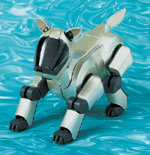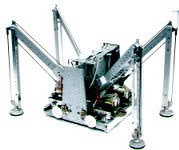What is Artificial Intelligence?
Artificial
Intelligence (AI) is a broad field, and means different things to different people. It is
concerned with getting computers to do
tasks that require human intelligence.
However, having
said that, there are many tasks which we might reasonably think require intelligence, such
as complex arithmetic which computer can do very easily. Conversely, there are many tasks
that people do without even thinking, such as recognizing a face which are extremely
difficult to automate. AI is concerned with these difficult tasks, which require complex
and sophisticated reasoning processes and knowledge.
Typical AI Problems
We can get an
insight into some of the different problem areas within AI by considering just what we, as
humans, need to be able to do to act intelligently in the world. Consider a simple task
like going shopping. We need to plan what to buy, how to get into town, and where to go,
navigate round the crowded shops without bumping into things, interpret what we see and
communicate effectively with people we meet. These are sometimes referred to as mundane
tasks and correspond to the following AI problem areas:
- Planning: the ability to decide on a good sequence of
actions to achieve our goals.
- Vision: the ability to make sense of what we see.
- Robotics: the ability to move and act in the world,
possibly responding to new perceptions.
- Natural language: the ability to communicate with
others in English or other human language.
What's New in AI World
- February 21, 2005: Toys
getting high-tech bells and whistles. By Anne D'innocenzio. Associated Press /
available from USA Today. "Picture an Elmo or Winnie the Pooh plush doll that knows a
child's name and favorite food, and tells stories and sings songs incorporating such
personal details. Or a new version of Furby that recognizes voices and reacts with
emotions from surprise to dismay, and responds to specific words a child says. ... As
microchips have become more powerful, manufacturers have been able to make more advanced
toys that are still affordable. ... Still, some toy analysts worry that all this
technology interferes with a child's using his or her imagination, an important part of
playing. "
- February 18, 2005: Robo-Toddler
Learns to Walk Like a Human. By Paul Recer, Associated Press Science Writer. Available
from baltimoresun.com / also available from Omaha.com (Small steps, giant robotic
leap). "The difference between man and machine is shrinking. Scientists have
developed a robot that 'learns' to walk like a toddler, improving its step and balance
with every stride. ... A report on the research appears this week in the journal Science.
The machines use what the researchers called a 'passive-dynamic design' that closely
mimics the way humans walk."
Some of AI Products
  
Aibo Robot (Sony)
Intelligent Cooker (I-Bhd) Artificial Life Robot

Home | FAQs about AI | AI Topics | AI Resources | Search | Feedback | Contact Information
Copyright or other proprietary statement goes here.
For problems or questions regarding this web contact [Ariffah Zakaria].
Last updated: 02/22/05. |

